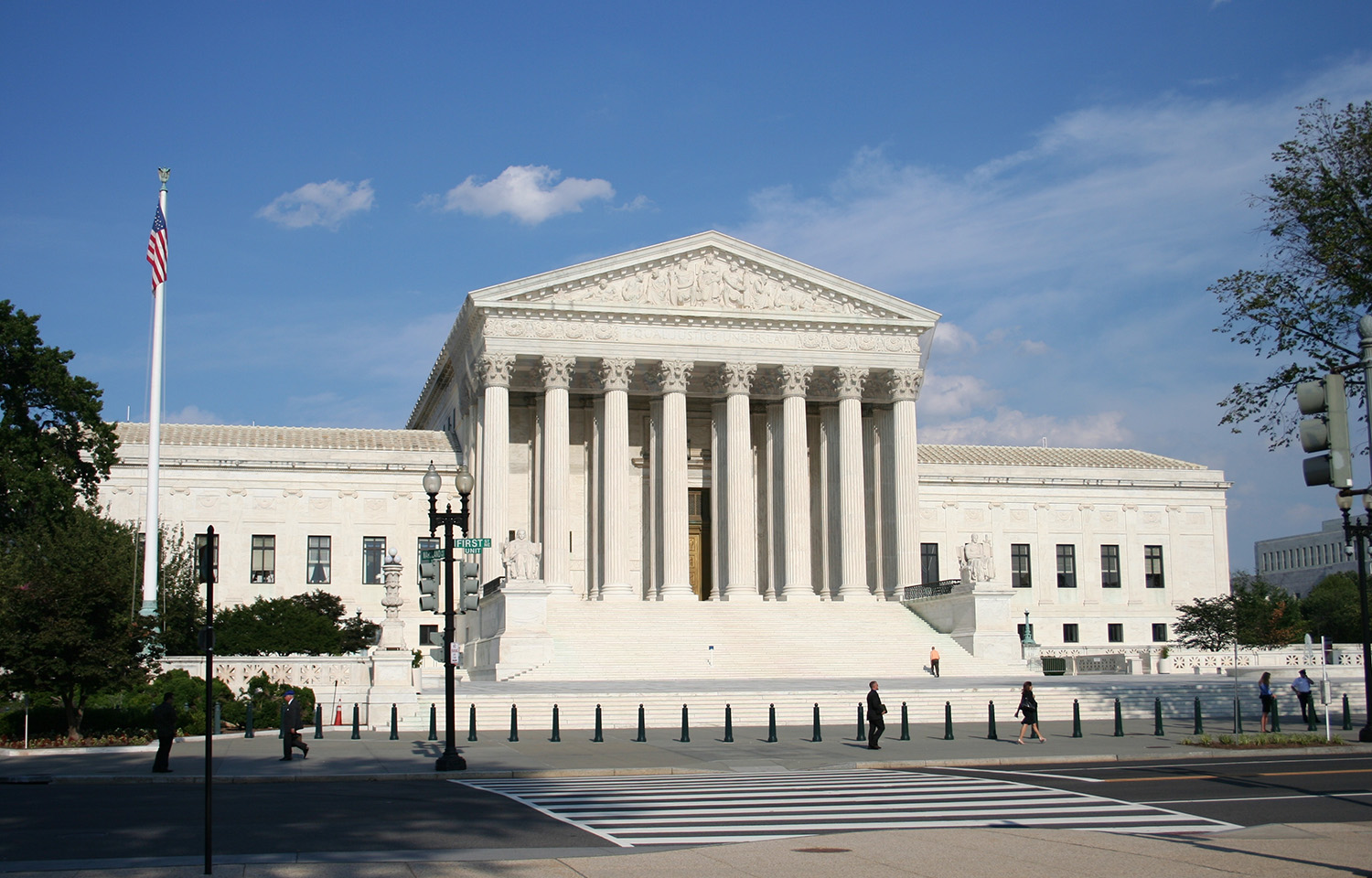A lawsuit filed by New Jersey herring fishermen has struck a massive blow to the authority of U.S. regulators.
On 28 June, the U.S. Supreme Court ruled in favor of the plaintiff fishermen in Loper Bright Enterprises v. Raimondo, overturning the longstanding Chevron deference – a legal precedent that gave federal agencies wide latitude in interpreting congressional statutes – and limiting the authority of NOAA Fisheries to implement regulations without clear guidance from lawmakers.
“Today is a really special day and the culmination of almost a decade of work to protect the rights of fishermen,” Seafreeze Fisheries Liaison and General Manager Mehan Lapp said of the ruling. “We finally saw a return to ‘Equal Justice Under Law’ as inscribed above the Supreme Court entrance. No more will fishermen and other American citizens lose their rights through judicial deference to government agencies. From now on, NOAA and other federal agencies will have to think about the consequences of their actions without the benefit of Chevron.”
The court killed the Chevron deference on a 6-3 vote, with U.S. Supreme Court Justice John Roberts writing the principal opinion for overturning the 40-year-old precedent. Roberts said Chevron was irreconcilable with the Administrative Procedure Act. He also said U.S. federal regulatory agencies lack the expertise needed to resolve statutory ambiguities, whereas “courts do.”
"The framers, as noted, anticipated that courts would often confront statutory ambiguities and expected that courts would resolve them by exercising independent legal judgment," Roberts said in his opinion. “Congress expects courts to handle technical statutory questions […] and courts did so without issue in agency cases before Chevron."
With the Chevron deference now dead, the courts will have more influence over the interpretation and implementation of congressional statutes and the regulations agencies adopt to implement those statutes.
“The Supreme Court decision today could go down as one of the most impactful in modern history,” U.S. Rep. Garret Graves (R-Louisiana) said. “This helps to restore the role of Congress and the balance of powers. The court is exactly right in that laws should only be written by Congress – not through the unilateral actions of Republican and Democrat presidents and bureaucrats. Now, the onus is on Congress to move away from dysfunction and toward doing what is best for the American people, rather than focusing on the politics. We will see if our politicians are up to the task.”
“Federal officials usually ignore the well-grounded concerns American fishermen share about overregulation,” New England Fishermen's Stewardship Association CEO Jerry Leeman said. “We are grateful to the Supreme Court for bucking this trend. And, we are especially grateful to the fishermen-plaintiffs in Relentless and Loper Bright who have spent years fighting for their brother and sister fishermen everywhere.”
The origin of the Loper Bright Enterprises v. Raimondo case traces back to 2020, when NOAA Fisheries issued new requirements forcing some commercial fishermen to pay for at-sea monitors to observe their operations. Unhappy with those out-of-pocket costs – which they claimed could be more than USD 700 (EUR 640) per day – some of the fishermen sued.
The fishermen lost in court in 2021 due to the Chevron deference, which led the judges to defer to the government’s own interpretation of the law. But, in 2023, the Supreme Court announced that it would be taking up the case as well as a similar case – Relentless, Inc. v. the U.S. Department of Commerce – specifically to reconsider the Chevron precedent. Oral arguments were presented before the Supreme Court in January of this year.
“This ruling is long overdue,” NCLA Senior Litigation Counsel John Vecchione said. “To allow agencies to pick the pocket of the regulated without congressional authorization is against all the principles of representative government and our constitutional structure.”
The ruling also drew criticism, with ocean conservation group Oceana slamming the decision as an attack on responsible fisheries management.
“Fishery observers are our eyes on the water to uphold healthy fisheries; without them, we are operating in the darkness,” Oceana Vice President of U.S. Oceans Beth Lowell said in a statement. “This case was a fundamental attack by some in the fishing industry on responsible fisheries management in the U.S. Some fishers want to operate in the dark, unmonitored, and return to a wild west of fishing in U.S. waters, but these companies are fishing on a public resource and making profits from the fish they are taking from our oceans. Without monitoring, limits become irrelevant, and rules become suggestions. Observers help prevent overfishing and rebuild fisheries, and now that may be at stake.”
Lowell went on to say that the ruling allows politically appointed judges to make decisions on fisheries management policy instead of the experts at government agencies.
In her dissenting opinion, U.S. Supreme Court Justice Elena Kagan defended the Chevron deference’s approach of relying on government experts to interpret ambiguous statutes within reason.
“Congress knows that it does not – in fact cannot – write perfectly complete regulatory statutes,” Kagan said. “It knows that those statutes will inevitably contain ambiguities that some other actor will have to resolve and gaps that some other actor will have to fill. And, it would usually prefer that actor to be the responsible agency, not a court.”








